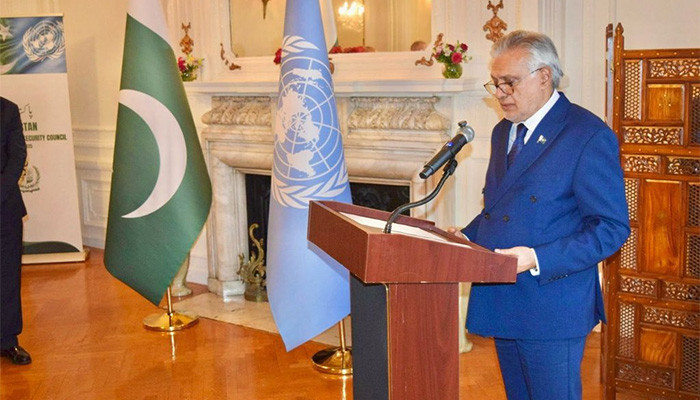Pakistan Committed to Global Peace and Development
Deputy Prime Minister and Foreign Minister Senator Ishaq Dar affirmed Pakistan’s dedication to global collaboration on Wednesday, emphasizing the nation’s commitment to working alongside international partners to foster shared objectives of peace, development, and the protection of human rights.
“Our involvement goes beyond the Security Council and extends throughout the UN system, from the General Assembly to the UN Economic and Social Council (ECOSOC) and other bodies,” he stated.
During a reception hosted by Pakistan’s Mission in New York to commemorate Pakistan’s Presidency of the UN Security Council, Dar advocated for comprehensive dialogue and collaborative diplomacy amidst growing global instability, noting that “the consequences of unresolved conflicts, protracted disputes, unilateral actions, and disregard for international law are being experienced worldwide.”
He underscored Pakistan’s steadfast dedication to multilateralism, peaceful resolution of conflicts, and the fundamental principles of the UN Charter.
Addressing diplomats, UN officials, and representatives from member states, Dar highlighted that Pakistan’s foreign policy is rooted in a strong belief in multilateralism and adherence to international law.
“The principles enshrined in the UN Charter, particularly the peaceful settlement of disputes and the rejection of the use or threat of force, are vital to the United Nations and essential for a fair global order,” he declared.
Dar’s comments coincided with Pakistan assuming the presidency of the UN Security Council for the current month. He noted that Pakistan’s leadership during this period is guided by these principles in its discussions and actions.
Under Pakistan’s leadership, the Security Council recently adopted Resolution 2788, following an extensive open discussion on the peaceful resolution of disputes, which is the first of three priorities outlined by Dar.
He characterized this fundamental principle of the UN Charter as “frequently overlooked” and emphasized the need to reinstate it as a central focus of the Council’s work.
Dar also emphasized the significance of revitalizing multilateralism, not merely as a slogan but as a necessity. He asserted that “The Security Council should be viewed not only as a reactive body but as a platform for prevention, problem-solving, and principled leadership.”
A further priority for Pakistan’s presidency is to strengthen cooperation between the United Nations and regional organizations, especially the Organisation of Islamic Cooperation (OIC).
Dar announced that a Council briefing with the OIC is planned for July 24, acknowledging the 57-member organization’s crucial contribution to global peace initiatives.
He highlighted Pakistan’s proactive role in global conversations on climate and development and reaffirmed its support for strengthening the UN’s three main pillars: peace and security, development, and human rights.
He also announced Pakistan’s candidacy for the Human Rights Council for the 2026–2028 term, which has received endorsement from the Asia-Pacific Group.
“Our engagement with the Human Rights Council is driven by values of truth, tolerance, mutual respect, consensus-building, and engagement,” he stated, expressing optimism for widespread international backing.
In closing, Dar urged the international community to overcome divisions.
“In a world marked by increasing divisions and growing challenges, we must choose collaboration over confrontation and diplomacy over force. Pakistan is ready to collaborate with all of you to advance these shared goals,” he concluded.



Comments (0)
No comments yet. Be the first to comment!
Leave a Comment